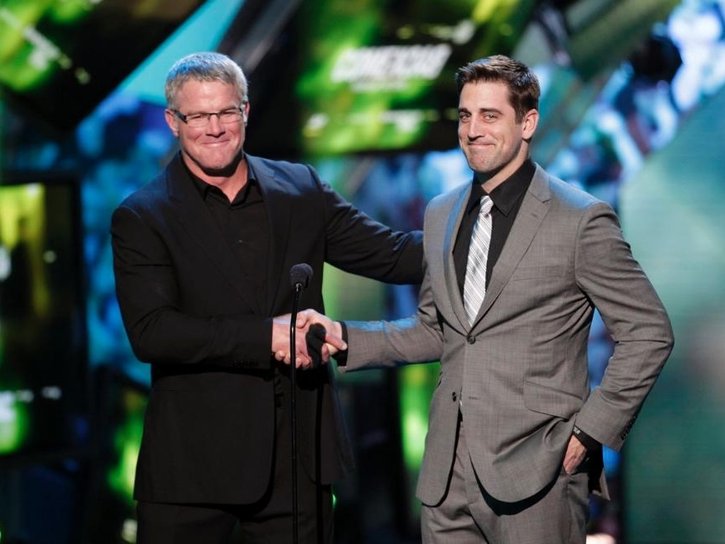On the surface, it would seem that Brett Favre made a deal with the devil, similar to the one made between Lucifer and Kurt Warner when the latter was quarterbacking the St. Louis Rams to an improbable Super Bowl championship following the 1999 season.
What other way is there to explain Favre's performance this season, in which he's led the Packers to a 10-2 record and put them on the verge of clinching the NFC North Division Championship? Favre has passed for 3,412 yards with 22 touchdowns and just 10 interceptions. His passer rating of 97.9 is a lot more reminiscent of his days with the talent-laden squads of the mid-1990s than the marks of 72.7 and 70.9 of the last two seasons.
In reality, Favre -- who was recently named Sportsman of the Year by Sports Illustrated -- is simply growing up.
How head coach Mike McCarthy was able to get through to the 17-year veteran (has it really been that long?) remains to be seen. Getting Favre to accept a game-management role when he's spent his entire career as a gambling gunslinger was no easy task and it speaks volumes to the abilities of McCarthy as a coach that he was able to accomplish that.
If this season is any indicator, perhaps it was Favre's fault that the Packers stumbled to a combined 12-20 record over the previous two seasons. The talent level isn't that much better in many areas, but the quarterback's game has changed significantly.
One of the biggest reasons the Packers were so successful in the first part of the 1990s was that Mike Holmgren was able to reel in Favre's wilder impulses. How many stories did we hear about Holmgren's legendary frustration with Favre's decision-making during the first few years of their relationship? It wasn't until Favre finally bought into Holmgren's system that the Packers finally got over the hump.
Were it not for the otherworldly antics of New England's Tom Brady, and to a lesser extent, the Colts' Peyton Manning, Favre would be a shoo-in for Most Valuable Player honors this season. It's safe to say that no player in the NFL means as much to his team -- from a purely football standpoint -- than Favre does to the Packers.
His performance thus far does have some flaws, however. Until Ryan Grant came along, the Packers had nothing that even closely resembled a running game. That put added pressure on Favre to make big plays in close games.
Against the Redskins, for example the Packers amassed just 56 yards rushing between DeShawn Wynn and Vernand Morency. With less-than-favorable weather conditions, it was up to Favre to bring Green Bay back from a 14-7 deficit. It wasn't his day, as Favre completed just 19 of 37 attempts for 188 yards and a pair of interceptions.
Thanks to a defensive score by Charles Woodson, the Packers escaped with a 17-14 victory, but it was obvious that Favre can't do the job alone. It was the same story in Dallas, where Favre was struggling to mount any sort of an attack. He was 5 of 14 for 56 yards and threw a pair of interceptions before leaving the game with an injury in the second quarter. With the Packers down by as many as 17 points, Favre got away from the system that got Green Bay to 10-1 at that point and reverted back to his risky ways.
Performances like those are the ones which continue to give his dwindling number of naysayers ammunition. Many people -- including this columnist -- called for Favre to retire or even be traded. Those opinions were lambasted by many but, no matter what people want to believe, they were justified.
While he still had the ability to bring a team back for a late victory and was better than any other option the Packers had at the position, he was also a liability at the same time. His on-going off-season retirement questions put the team in a predicament as general manager Ted Thompson tried to decide what direction to take in building the franchise.
There is still a long way for the Packers to go this season; today's game against Oakland is followed by road games in St. Louis and Chicago and it looks, for now, that Green Bay is in line for a second trip to Dallas to face the Cowboys in the playoffs.
Favre has proven that he's worthy of every accolade he's received this season, but in order to end the season -- and possibly his career -- on a "Super" note, he needs to continue to play within the system and understand his teammates and his own limitations.







